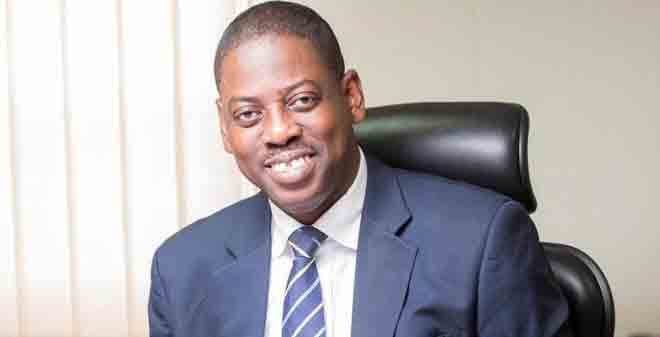
Sustaining financial literacy campaigns imperative
All over the world, there is a growing consensus on the need to improve financial education and literacy in a bid to enhance people’s understanding and awareness of the financial products and investments available to them.
It is also meant to help them leverage opportunities to be financially independent.
A better understanding of the financial market, concepts and products by individuals also help in preventing fraud while helping people to avoid undesirable situations arising either from excessive indebtedness or unsuited risk positions.
In the last couple of years, the issue of financial literacy has become more topical than ever due to the COVID-19 pandemic, which affected businesses and livelihoods, thereby exposing individuals who had not adequately planned for their financial independence.
Quite recently, the Russia-Ukraine conflict, which has affected global supply chains and disrupted markets across the world, has also brought its own untold hardships on economies and businesses.
Back in Ghana, these two global crises, coupled with the financial sector clean up, have also brought to the fore the need to properly educate people on their finances and help investors navigate the challenges and uncertainties surrounding investment options.
Financial education campaigns
Over the years, the country has witnessed several financial education campaigns from the Ministry of Finance, financial sector regulators, market players and advocacy groups, among others, with the latest being the ‘Ring the bell for financial literacy campaign’, which was recently organised by the Ghana Stock Exchange (GSE).
While these campaigns have been commendable, they are often just for a period of time after which little is heard on some of these campaigns.
But in order to make these campaigns effective to achieve the required results, they must be sustained and must not be seen as events. Financial literacy is not an end in itself but a step-by-step process to help the public to appreciate the need to invest.
Sustaining the campaigns
Giving the keynote address at the GSE’s Ring the bell for financial literacy campaign, the Director General of the Securities and Exchange Commission (SEC), Rev. Daniel Ogbarmey Tetteh, emphasised the need to sustain these financial literacy campaigns.
He said building investor resilience was very relevant in view of the current economic challenges confronting the world and the uncertainties in the investment space.
“It’s nice to have this event but beyond having events, we must have a sustained approach to achieving knowledge and awareness about the financial market and how it operates.
“We must also make sure the education is simplified so that the target audience can understand,” he stated.
Goals of financial literacy campaigns
The director general also outlined some goals that should underpin financial literacy and financial education campaigns in the country.
He said to create a pool of resilient investors, financial literacy campaigns must have an overarching goal of producing responsible and informed investors.
“People must be responsible for the decisions they take. We need to get to a point where we have investors that are responsible and informed and are responsible for planning their finances and investment decisions.
We need to educate people on the need to plan and the need to follow the plan and not the crowd,” he stated.
He said the campaigns must also have the goal of producing investors who were responsible for conducting some minimum due diligence about the products they were signing on to and the service providers.
“People, many a time, just follow the word of mouth and invest but it is necessary to do your own checks to find out if the providers are even licensed,” he stated.
Rev. Ogbarmey Tetteh also pointed out that a good financial education campaign must be aimed at creating investors who were knowledgeable about the risk return characteristics of various products.
“We have people who do not appreciate this and you sometimes get investors asking you what is the best return, forgetting that the returns were based on the risks,” he noted.
Shared responsibility
He also emphasised that investor education was a shared responsibility, which involved the financial sector regulators, the market operators and even the investors themselves.
“Market operators are also responsible, as well as the investing public who also have a responsibility to access the sources of financial information available to bolster their awareness.
“This means that everyone should step up to the occasion in achieving financial literacy and driving illiteracy out of the sector,” he stated.
Conclusion
The uncertainties in people’s minds regarding investment have heightened because there are a lot of speculations around what action the government will take as part of efforts to restructure the country’s debts in a move to bring them to sustainable levels.
Many fear that as part of the options available to the government, it will resort to a haircut, which means that people’s investments will suffer. If that happens, it is likely to dampen their resolve.
However, the educational campaign should not stop because this is the time for people to appreciate the topic and continue to invest in the future. There is no need for panic withdrawals because that will spell doom for an already ailing economy.